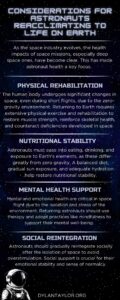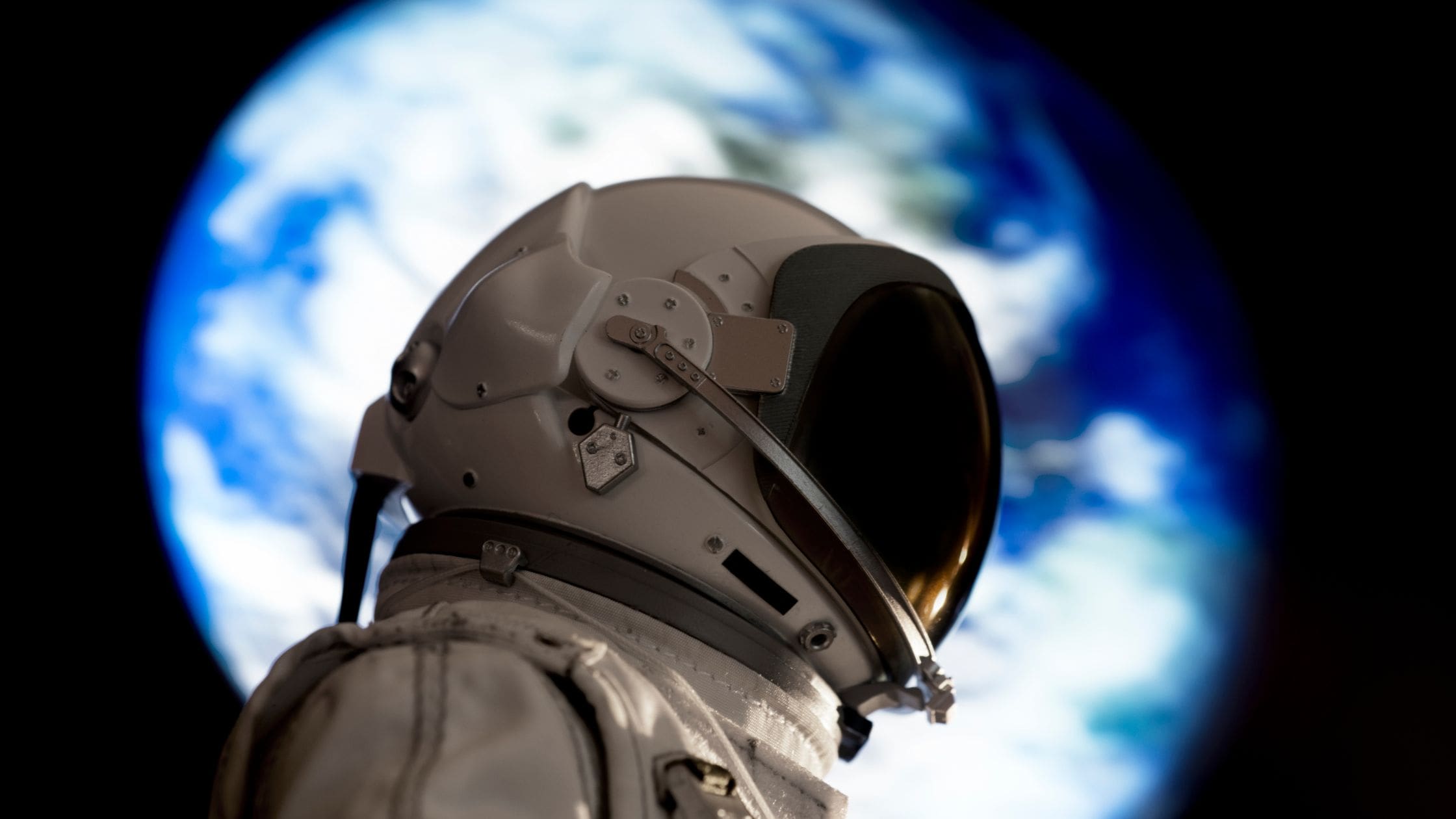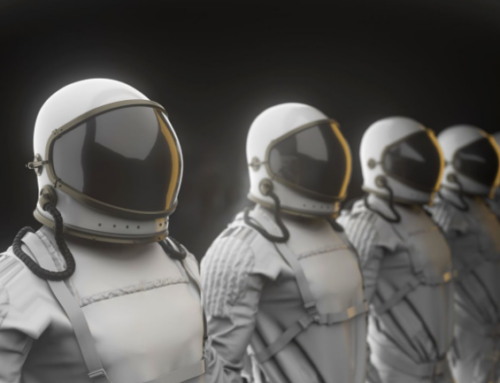As the space industry evolves, it has become increasingly aware of the safety and wellness implications of space exploration. Space missions – particularly those in deep space – can have a myriad of effects on the human body, from various physical health factors to influences on mental and emotional health. Such effects have given way to prevailing research that has made astronaut health a crucial aspect of modern space flight.
However, these considerations do not end at a mission’s conclusion; they often extend into a layered reacclimation process, in which astronauts must keep several critical factors in mind to ensure a seamless, healthy transition back to life on Earth.
Physical rehabilitation
The human body changes quite a bit in space, with even comparatively short space flights yielding measurable bodily effects. This fact is understandable, considering the vastly different physical constraints and demands of a zero-gravity environment. Naturally, returning to the Earth requires considerable physical exercise and rehabilitation to restore strength in under-used muscles, reinforce skeletal health, and ultimately counter any bodily deficiencies created during the astronaut’s time in space.
Nutritional stability
Astronauts must also remember to take it slow with eating, drinking, and exposing themselves to Earth’s elements post-space, as such factors are sometimes drastically different during everyday life in zero gravity. A balanced, vitamin-rich diet; gradual sun exposure; and adequate hydration are just a few effective assets to rebuilding and maintaining nutritional stability.
Mental health support
Mental and emotional health have become increasingly prominent aspects of space flight research, with space’s isolated, quiet, and at times overwhelming nature putting potentially massive stress on an astronaut’s mind. Upon returning to Earth, astronauts should take advantage of therapy and counseling resources aimed at their unique experience – while adopting beneficial mental practices like emotional mindfulness.
Social reintegration
Similarly, astronauts should take a proactive yet careful approach to socially reintegrating with friends, family, and the general public. After spending an extended period in the quiet, often solitary isolation of space, astronauts may find it easy to become overstimulated by a sudden influx of social engagement, making reintegration a gradual but necessary process. Social support can go a long way in bolstering an astronaut’s emotional stability and re-establishing a sense of normalcy.
Though reacclimating to Earth can seem difficult, it is a tangible and increasingly common reality for astronauts. The above fields represent just a few significant factors to remember as one navigates this important process.







